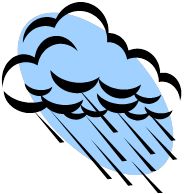 When I read an item the Genealogical Association of Nova Scotia posted on Facebook about the year without summer, I realized we in Montreal are not the only ones desperate to see warm, sunny weather. Haligonians must also be anxiously waiting for summer. Usually the long Victoria Day weekend means that I have three glorious days to plant annuals, edge flower beds, and pull weeds. Not this year. All the rain and unseasonal cold weather has turned my garden into mud. Perhaps next weekend…
When I read an item the Genealogical Association of Nova Scotia posted on Facebook about the year without summer, I realized we in Montreal are not the only ones desperate to see warm, sunny weather. Haligonians must also be anxiously waiting for summer. Usually the long Victoria Day weekend means that I have three glorious days to plant annuals, edge flower beds, and pull weeds. Not this year. All the rain and unseasonal cold weather has turned my garden into mud. Perhaps next weekend…
I do hope that summer this year will be much better than the one my ancestors experienced in 1816.
In his article, Eight Hundred and Froze to Death: The Year There Was No Summer, Keith C. Heidron, The Weather Doctor, writes that the year 1816 has gone down in the annals of Quebec and New England history as “The Year There Was No Summer.” The summer had only two extended periods without frost or near freezing temperatures.
During the night of June 5, 1816, rain fell over Quebec City, which is not unusual. By the following morning, however, the temperature had fallen to the freezing mark and the rain was mixed with snow.
Snow and freezing temperatures continued through June 8. The Quebec Gazette observed that on the morning of the 8th, “The whole of the surrounding country was in the same state, having . . . the appearance of the middle of December.” On the south shore of the St. Lawrence River, “banks of snow reached the axletrees of the carriages.” The Rev. Sparks in Quebec City wrote: “…bleak cold very uncommon weather for the season. It snowed a little the whole day — at 10 at night the ground was completely covered.”
Dr. Heidorn writes: “In Quebec, great numbers of birds and newly-shorn sheep perished in the cold. Gardens and wild fruit trees which had come to blossom suffered severely.”
According to a Wikipedia article about the summer that never was, “nearly 12 inches (30 cm) of snow was observed in Quebe City in early June with consequent additional loss of crops—most summer-growing plants have cell walls which rupture even in a mild frost. The result was regional malnutrition, starvation, epidemic and mortality.”
Our ancestors in Quebec and New England were not the only ones to experience a cold summer in 1816. Across the globe, frost killed crops. Gillian D’Arcy Wood writes in 1816, The Year without a Summer that this phenomenon lasted three years. “To be alive in the years 1816-18, almost anywhere in the world, meant to be hungry.” During this period, most of the world’s population depended on agriculture, surviving from harvest to harvest. The price of food skyrocketed and people swarmed out of the countryside to beg for alms.
After reading these articles, I must take a look with a renewed perspective at my ancestors who were agricultural labourers in Suffolk, England during the year without a summer. Since I will not be gardening this weekend, I have plenty of time to do so.
Copyright © 2014, Gail Dever.

